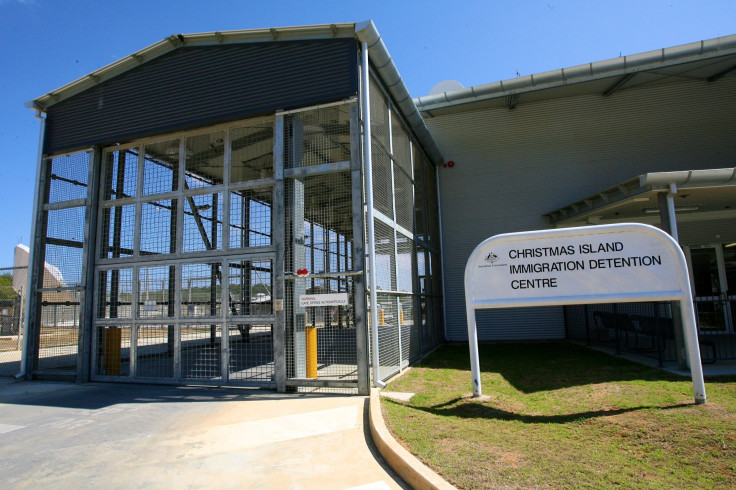Report: Private Prison Lobbyists Spend Millions To Keep Immigrants Locked Up

In 2010, the Department of Homeland Security adopted a bed quota that required Immigration and Customs Enforcement (ICE) to detain about 34,000 individuals on any given day. The quota certainly did not benefit immigrants -- but it did prove to be extraordinarily lucrative for the private prison companies that picked up the new business.
A report released last week by Grassroots Leadership, a Texas non-profit, details how private prison companies have spent five years lobbying the government, not only to maintain the quota, but to enact conservative immigration reform that would continue to ensure a steady flow of inmates into its detention centers.
“Payoff: How Congress Ensures Private Prison Profit with an Immigrant Detention,” says 62 percent of all ICE detention beds now are operated by for-profit prison companies. In fact, nine out of the 10 largest immigrant detention camps are private, with eight owned by only two corporations -- Corrections Corporation of America and the GEO Group. Those two corporations reaped about $500 million in 2014 alone.
To protect their interests, these companies -- particularly CCA -- have spent millions in conservative lobbying efforts.
“Contrary to private prison corporation claims that they do not lobby on issues related to immigration policy, between 2008 and 2014, CCA spent $10.56 million in quarters where they lobbied on issues related to immigrant detention and immigration reform,” the authors note.
The report also found since the 2010 bed quota was instituted, the two companies have expanded operations in a number of states, now detaining "3,600 refugee mothers and children, at enormous profit to these corporations." Critics say the conditions at these facilities are abysmal, and access to medical care is scant. The report detailed the experience of Henry Taracena, an immigrant who was detained for five months at the GEO-run Northwest Detention Center in Tacoma, Washington. Taracena participated in a hunger strike while detained to bring publicity to the facility's conditions.
“I chose to [participate in the hunger strike] because [I saw] other people suffering, people not receiving medical care, minors arriving at the detention center without anyone having checked that they’re under age. … There were many calamities. … We had to do something," he said.
The report urges legislators to enact immigration reform that does not make use of a mandatory bed quota.
“The immigrant detention quota continues to be a prime example of how money and political gain can drive policy decisions," the report notes. "Those harmed by the immigrant detention quota have far less power and money: immigrants, their families, and the average American taxpayer."
© Copyright IBTimes 2024. All rights reserved.






















